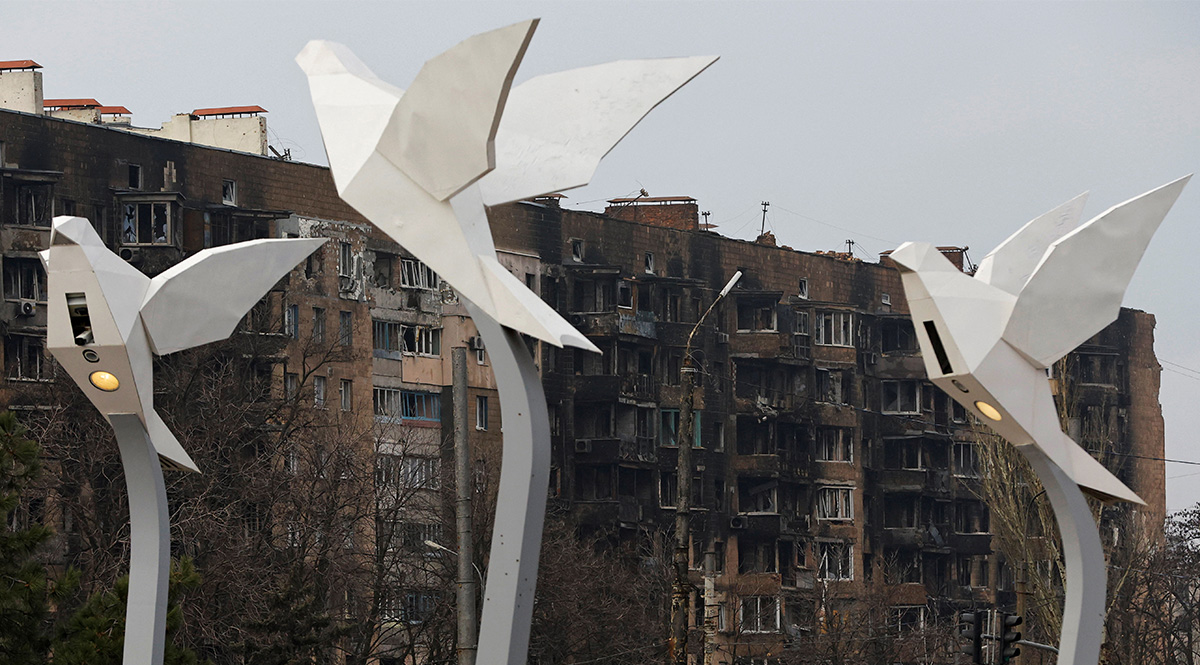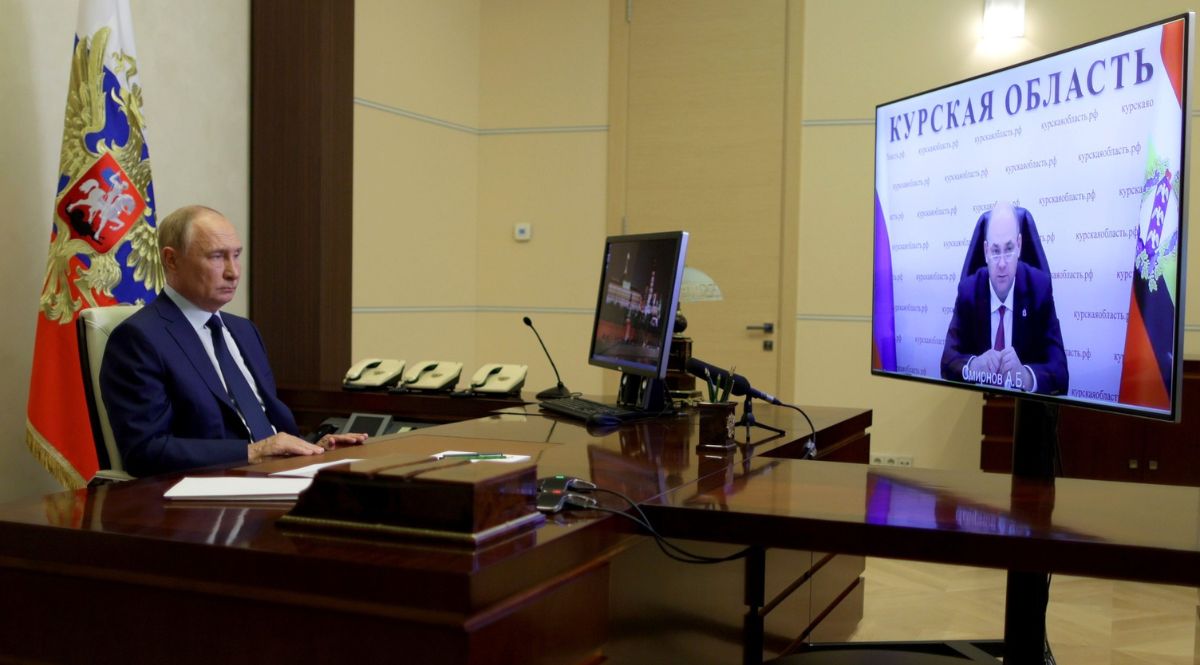What is the Political Calculus Behind the Ukrainian Military Operation in Russia?
Launched at the beginning of August, the Ukrainian armed forces’ operation on Russian territory is significant in political and psychological importance, in addition to its military dimension. It has recaptured the attention of international public opinion to the Russian invasion of Ukraine and is generating pressure on foreign partners to supply more arms to Ukraine. Control of parts of Russian territory in the longer term may also strengthen the Ukrainian negotiating position in possible talks on ending the war.
(1).png) Chubotin Kirill/Ukrinform/ABACA/Abaca Press
Chubotin Kirill/Ukrinform/ABACA/Abaca Press
Implications for the Internal Situation in Ukraine
The Ukrainian army’s operation on Russian territory, successful so far, has had a major psychological impact, raising the waning morale of Ukrainian society. Although social mobilisation remains high and the vast majority of Ukrainians—80% according to a Razumkov Centre survey—believe in victory over Russia, growing war fatigue has also manifested itself in society. The pool of volunteers for military service is gradually shrinking, while the number of men of mobilisation age (25-60) who try to avoid being drafted is increasing. Further massive Russian attacks on Ukraine’s energy infrastructure are resulting in more frequent power cuts. As of the first half of this year, most of Ukraine’s thermal power plants and almost half of its hydroelectric power plants had been damaged or destroyed, raising questions about the condition of the energy sector during the upcoming winter season. The lengthy war also places a heavy financial burden on the state and society, especially in the context of uncertain future assistance from foreign partners.
The success of the Ukrainian operation on Russian territory consolidates Ukrainian President Volodymyr Zelensky’s position domestically. The percentage of Ukrainians declaring confidence in the president was on a steady decline in recent months, from 77% in December 2023 to around 50% before the operation began in early August. The success in seizing part of Russian territory and the proficiency with which the Ukrainian forces carried out the operation allows the president to deflect the criticism he has faced since his unpopular decision to change the commander-in-chief of the armed forces in February this year, from Gen. Valeriy Zaluzhny to Gen. Oleksandr Syrsky.
Impact on Potential Peace Talks
The seizure of part of Russian territory (currently around 100 small settlements) does not give Ukraine an advantage in the war, nor does it constitute a military objective in itself, yet it undermines the public image of Vladimir Putin as a leader capable of ensuring Russia’s security. Moving the hostilities to Russian territory and the consequent evacuation of the Russian population from the border areas (around 120,000 people so far) as well as the capture by the Ukrainian army of several hundred Russian prisoners of war, including many conscripts, also creates a new political problem for the Russian regime. Ukraine hopes this challenges Putin’s legitimacy among the Russian power elite, which would result in a weaker Russian position in the context of any possible peace talks.
The peace initiatives undertaken by the international community to date have not been successful, nor was the Peace Summit in Switzerland, organised on the initiative of Ukraine. The military situation on the frontline where Russian troops still have the initiative, remains the main factor determining the end of the war. Despite public declarations of its willingness to negotiate with Ukraine, Russia has so far shown no desire to make concessions, hoping for a collapse of Ukraine’s defences. Although the Ukrainian authorities have consistently held the position that the war should end with Ukraine regaining its full territorial integrity, a change in domestic political rhetoric has been apparent in recent months. There is increasing emphasis on achieving a “just peace” and preserving state sovereignty, which indicates a growing readiness on the Ukrainian side for a potential, even if temporary, ceasefire and to defer efforts to regain all territories occupied by Russia.
The Position of Foreign Partners
The failure of the Ukrainian offensive last summer and the lack of significant progress of the Ukrainian army on the frontline have shaken confidence among foreign partners in Ukraine’s victory and resulted in a gradual decline in public approval for further support, with the percentage of those in NATO countries in favour of continuing assistance to Ukraine dropping from 69% in 2023 to 63% in 2024. In this context, the successful, but also spectacular attack on Russian territory brought the Ukrainian authorities a significant boost in image and allowed them to once again, at least temporarily, seize the initiative in the information sphere. A poll conducted by The Economist and YouGov after the Ukrainian forces had already begun the operation on Russian territory showed that, for the first time since late 2023, the number of U.S. respondents willing to identify Ukraine as the side currently winning the war had increased. Ukraine hopes that cutting through the rhetoric of “war fatigue”, now frequent in the public debate, will provide a new impetus for foreign partners to increase their military aid. By contrast, critics of such assistance may try to portray the Ukrainian operation as an unreasonable offensive action, resulting in unnecessary losses of military equipment received from partners, especially if the Ukrainian army eventually retreats from Russian territory.
The entry of Ukrainian troops into Russian territory is also part of Ukraine’s policy of fait accompli. The Ukrainian authorities wish to demonstrate that the fears of their Western partners, primarily the United States, of escalation on the part of Russia, and their corresponding reluctance to allow Ukraine to use more specialty weapons to strike targets deep inside Russia, are unfounded. Ukraine has stressed that the lack of permission preventing it from attacking Russian airfields where aircraft used for missile attacks on Ukrainian cities are based has forced it to take offensive action on Russian territory to ensure its own security. The purpose is to effectively force Western partners to agree to Ukraine’s use of long-range weapons obtained from its partners to strike Russian military facilities located deep inside Russian territory—so far, these weapons have been limited to use in border areas.
Conclusions and Perspectives
The exact purpose of the Ukrainian operation on Russian territory is still unclear. The Ukrainian authorities may have been driven by a military calculation, pre-empting a potential attack by Russian forces on Kharkiv and Sumy, and aiming to force Russia to move some troops from the Ukrainian front to defend its own territory. But they were probably also motivated by a short-term political calculation, hoping to secure reputational gains and break the increasingly passive attitude of their foreign partners. So far, the Ukrainian actions on Russian territory have hardly stopped the progress of Russian troops in eastern Ukraine, nor have they prompted the Russian authorities to revise their war aims. Nonetheless, for the first time in a while, Ukraine has broken the impasse with its own army, bolstering Ukrainian morale after last summer’s failed offensive and building pressure on Western partners to increase and accelerate arms supplies to Ukraine.
The Ukrainian authorities are increasingly signalling their readiness for peace talks, and for this reason they are building an international coalition of countries supporting the Ukrainian vision of ending the war. Until now, however, they have had little leverage to force concessions from Russia. So, in the context of military operations in Russian territory and potentially retaining permanent control over parts of it strengthens Ukraine’s position ahead of any possible talks with Russia, primarily by complicating Russian intentions to freeze military operations along the current frontline. Territorial gains could also allow the Ukrainian side to possibly exchange control of border territories with Russia, involving the withdrawal of Ukrainian troops from the Kursk region in exchange for the withdrawal of Russian forces from part of the occupied Ukrainian territory (e.g., Kharkiv region), in order to at least partially stabilise the situation on the frontline.
In response, Russia will likely further increase pressure on Ukrainian society and the authorities, conducting more massive attacks on Ukrainian critical infrastructure and civilian facilities and/or staging provocations around the Zaporizhzhia Nuclear Power Plant. Alongside this, Russia will attempt to blame Ukraine for alleged acts of terrorism on Russian soil and argue that the Ukrainian operation poses a threat to nuclear security due to its proximity to the Kursk Nuclear Power Plant. If Ukrainian forces manage to sustain their positions in the Kursk region, Russia may further step up its rhetoric of nuclear intimidation towards Ukraine and its partners.





.png)
